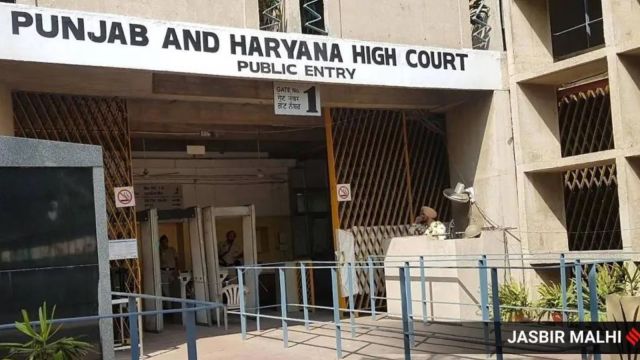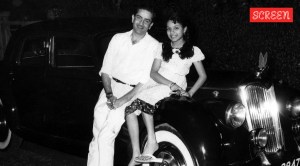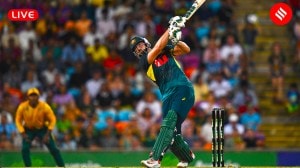HC strikes down Punjab formula for premature release of prisoners
The court found the state’s formula—actual custody during undertrial plus custody post-conviction, minus the parole period—lacked legal backing and contradicted the Punjab Good Conduct of Prisoners (Temporary Release) Act, 1962.
 The court held that Singh’s case must be considered under the 1991 premature release policy, which requires 10 years of actual imprisonment and 14 years, including remission. (File)
The court held that Singh’s case must be considered under the 1991 premature release policy, which requires 10 years of actual imprisonment and 14 years, including remission. (File)The Punjab and Haryana High Court has ruled that parole must be deducted from the total sentence, including remission, and not from the actual sentence, which covers only the time spent in custody while considering eligibility for premature release of prisoners. Setting aside the Punjab government’s October 2024 order denying life convict Rupinder Singh’s release, the court directed a fresh assessment of his case within four weeks.
Justice Harpreet Singh Brar, who delivered the ruling on May 29, also struck down the state’s 2020 formula that excluded parole from the actual sentence. “The formula prescribed in meeting dated 16.07.2020 is held to be invalid, being in direct contravention of Section 3(3) of the Act of 1962… It is directed that the parole period shall only be subtracted from the total sentence and not from the actual sentence,” the court said.
The court found the state’s formula—actual custody during undertrial plus custody post-conviction, minus the parole period—lacked legal backing and contradicted the Punjab Good Conduct of Prisoners (Temporary Release) Act, 1962. Section 3(3) of the Act states: “The period of release under this section shall not count towards the total period of the sentence of a prisoner.”
Interpreting this, Justice Brar clarified, “Actual sentence must be interpreted to mean the real time spent by a prisoner behind bars. and therefore, has two parts only i.e. (i) Actual time undergone in custody as an undertrial and (ii) Actual time undergone as a convict. Thus, the quantum of actual sentence is a matter of fact, a constant number…Total sentence, for the purpose of premature release, would include the actual sentence undergone by the prisoner and the remission earned by him.”
The court held that Singh’s case must be considered under the 1991 premature release policy, which requires 10 years of actual imprisonment and 14 years, including remission. Citing Raj Kumar vs. State of Uttar Pradesh, 2024(9) SCC 598, the court said, “The State having formulated Rules and a Standing Policy for deciding cases of premature release, it is bound by its own formulations of law… It must strictly abide by the terms of its policies bearing in mind the fundamental principle of law that each case for premature release has to be decided on the basis of the legal position as it stands on the date of the conviction.”
The court also referred to Avtar Singh vs. State of Haryana, 2002 SCC (Cri.) 504, noting, “Ordinarily, the period of temporary release of a prisoner on parole needs to be counted towards the total period of detention, but this condition can be curtailed by legislative act, rules, instructions or terms of the grant of parole.” As no such legal change had been made, the court said Section 3(3) remained applicable.
Rupinder Singh was convicted of murder on August 11, 2014, by the Sessions Court in Hoshiarpur under Section 302 of the Indian Penal Code. His conviction was upheld by the high court on October 3, 2019, and by the Supreme Court on November 22, 2019.
Seeking premature release under the 1991 policy, Singh’s case was considered by the court on January 16, 2024. The state later challenged this, and on March 24, 2025, the Supreme Court allowed it to file a review petition. The key issue was whether over three years of Singh’s parole should be deducted from his actual time served or from the total sentence. The state’s 2020 clarification favoured the former, delaying his eligibility.
Singh’s lawyers, Nandan Jindal and Tushar Sabherwal, argued that the 2020 clarification was applied retrospectively and violated constitutional rights under Articles 14, 19, and 21. They cited Jai Kishan @ Bhola vs. State of Punjab (2022) and Baljeet Singh @ Rangi vs. State of Punjab (2022).
Deputy Advocate General Pardeep Bajaj, appearing for the state, relied on Rohan Dhungat vs. State of Goa (2023 AIR SC 265), but the court held it was not applicable due to differences in state laws.
Justice Brar noted, “The objective behind the Act of 1962 is humanitarian in nature… Ensuring that the incarcerated have healthy roots in the society greatly assists in their rehabilitation and reintegration.”







